32 Books Published by University Press of Mississippi on AALBC — Book Cover Collage
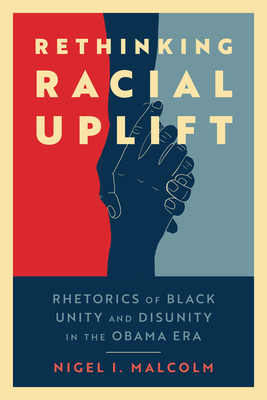 Rethinking Racial Uplift: Rhetorics of Black Unity and Disunity in the Obama Era (Hardback)
Rethinking Racial Uplift: Rhetorics of Black Unity and Disunity in the Obama Era (Hardback)
by Nigel I. MalcolmUniversity Press of Mississippi (Jan 16, 2023)
Read Detailed Book Description
In 1903, W. E. B. Du Bois wrote about the Talented Tenth in an influential essay of the same name. The concept exalted college-educated Blacks who Du Bois believed could provide the race with the guidance it needed to surmount slavery, segregation, and oppression in America. Although Du Bois eventually reassessed this idea, the rhetoric of the Talented Tenth resonated, still holding sway over a hundred years later.
In Rethinking Racial Uplift: Rhetorics of Black Unity and Disunity in the Obama Era, author Nigel I. Malcolm asserts that in the post-civil rights era, racial uplift has been redefined not as Black public intellectuals lifting the masses but as individuals securing advantage for themselves and their children. Malcolm examines six best-selling books published during Obama’s presidency―including Randall Kennedy’s Sellout, Bill Cosby’s and Alvin Poussaint’s Come on People, and Ta-Nehisi Coates’s Between the World and Me―and critically analyzes their rhetorics on Black unity, disunity, and the so-called “postracial” era. Based on these writings and the work of political and social scientists, Malcolm shows that a large, often-ignored, percentage of Blacks no longer see their fate as connected with that of other African Americans.
While many Black intellectuals and activists seek to provide a justification for Black solidarity, not all agree. In Rethinking Racial Uplift, Malcolm takes contemporary Black public intellectual discourse seriously and shows that disunity among Blacks, a previously ignored topic, is worth exploring.
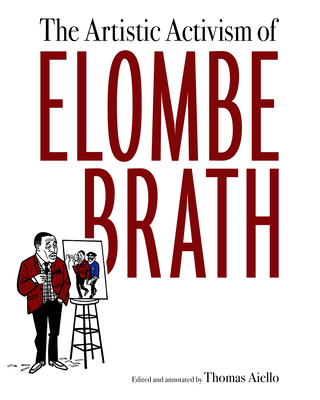 Artistic Activism of Elombe Brath
Artistic Activism of Elombe Brath
by Elombe Brath and Thomas Aiello (editor)University Press of Mississippi (Sep 15, 2021)
Read Detailed Book Description
Collected for the first time, an exploration of the artwork and commentary of a forgotten activist during the civil rights movement
In 1963, at the height of the southern civil rights movement, Cecil Brathwaite (1936–2014), under the pseudonym Cecil Elombe Brath, published a satire of Black leaders entitled Color Us Cullud! The American Negro Leadership Official Coloring Book. The book pillories a variety of Black leaders—from political figures like Adam Clayton Powell and Whitney Young to civil rights activists like Martin Luther King, Bayard Rustin, and John Lewis, and even entertainers like Sammy Davis Jr. , Lena Horne, and Dick Gregory—critiquing the inauthenticity of movement leaders while urging a more radical approach to Black activism. Despite the strong illustrations and unique commentary presented in the coloring book, it has virtually disappeared from histories of the movement.
The Artistic Activism of Elombe Brath restores the coloring book and its creator to a place of prominence in the historiography of the Black left. It begins with an analysis of Brath’s influences, describing his life and work including his development as a Black nationalist thinker and Black satirist. This volume includes Brath’s early works—illustrations for DownBeat magazine and Beat Jokes, Bop Humor, & Cool Cartoons—as well as the full run of his comic strip “Congressman Carter and Beat Nick Jackson” from the New York Citizen-Call and a complete edition of Color Us Cullud! itself. These illustrations are followed by annotations that frame and contextualize each of the coloring book’s entries. The book closes with selections from Brath’s art and political thinking via archival material and samples of his written work. Ultimately, this volume captures and restores a unique perspective on the civil rights movement often omitted from the historiography but vital to understanding its full scope.
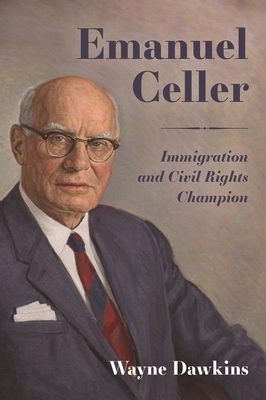 Emanuel Celler: Immigration and Civil Rights Champion
Emanuel Celler: Immigration and Civil Rights Champion
by Wayne DawkinsUniversity Press of Mississippi (Oct 16, 2020)
Read Detailed Book Description
Congressman Emanuel Celler (1888-1981) was a New York City congressman who served in the United States House of Representatives from 1923 to 1973. Celler’s almost fifty-year career was highlighted by his long fight to eliminate national origin quotas as a basis for immigration restrictions and his battles for civil rights legislation. In Emanuel Celler: Immigration and Civil Rights Champion, author Wayne Dawkins introduces new readers to a figure integral to our contemporary political system.
Celler’s own immigrant background framed his lifelong opposition to immigration restrictions and his corresponding support for reducing barriers for immigrant entry into the United States. After decades of struggle, he proposed and steered through the House the Hart-Celler Act of 1965, which eliminated national origins as a consideration for immigration, profoundly shaping modern America. Celler was also a consistent advocate for civil rights. As chairman of the House Judiciary Committee from 1949 to 1973 (except for a break from 1953 to 1955), Celler was involved in drafting and passing the Civil Rights Act of 1964, the Voting Rights Act of 1965, and the Civil Rights Act of 1968. During his career he was also deeply involved in landmark antitrust legislation, the establishment of US ties with the state of Israel, and the Gun Control Act of 1968, and was the author of three constitutional amendments, including the 25th that established presidential succession. Dawkins profiles a complex politician who shaped the central tenets of Democratic Party liberalism for much of the twentieth century and whose work remains central to the nation, and our political debates, today. From author Wayne Dawkins: Emanuel Celler (1888-1981) could be the most significant US legislator of the twentieth century. He cosponsored three Constitutional amendments—the twenty-third (voting rights for District of Columbia residents), the twenty-fourth (poll taxes banned), and the twenty-fifth (clear succession established if the president is removed from office). And, as a longtime chairman of the House Judiciary Committee, he reluctantly cosponsored a fourth—the twenty-sixth amendment (18-year-old voting rights). He is also linked to three-hundred laws, notably the Civil Rights Acts of 1957, 1960, 1964 and 1968; the Voting Rights Act of 1965; and his masterpiece, the Hart-Celler Immigration Reform Act of 1965. Over the past decade, Celler, who served fifty years in Congress, has been a supporting cast member in at least a dozen books about immigration or civil rights. He was frequently cited in One Mighty and Irresistible Tide (2020) and noted in two key moments of The Guarded Gate (2019). And he was cited generously in Goliath (2019), a book about Celler’s other passion—antitrust and monopoly busting. But this fall, he will at last be the focus of a full-length biography, Emanuel Celler: Immigration and Civil Rights Champion. And I believe it will become the go-to book for anyone wanting to know more about this history-making legislator.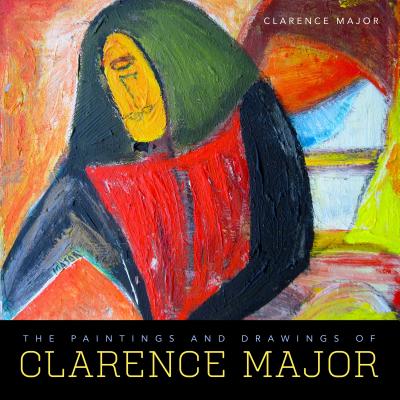 The Paintings and Drawings of Clarence Major
The Paintings and Drawings of Clarence Major
by Clarence MajorUniversity Press of Mississippi (Feb 15, 2019)
Read Detailed Book Description
In the first volume to collect the paintings and drawings of Clarence Major, readers are offered six decades of unique, colorful, and compelling canvases and works on paper—works of singular beauty and social relevance. These works represent Major’s personal painterly journey of passionate commitment to art.
This generous selection of more than 150 paintings and drawings shows us the melding of rich ideas and fertile images, the braiding of imagination and motif. With their pleasing arrangement of elements, the works come vividly to life. Major often juxtaposes a decorative scheme with his own unique choice of color combinations, reinforced with rigorous brushstrokes that release chromatic energy. The paintings complement and challenge the great traditions of Realism, Impressionism, and Expressionism.
Major is primarily a figurative and landscape painter. Here we find landscapes of singular vitality, rich in color and design, dramatic landscapes, and cityscapes representing, among other things, Major’s extensive travels in America and Europe. We are also treated to Major’s signature figurative work. In these paintings, he ventures fearlessly into familiar yet unexpected areas of richness.
Also included is an introductory essay, "The Education of a Painter," written by the artist, which further sheds light on and helps to lay a biographical, social, and historical foundation for this essential volume, reflecting a lifetime of serious commitment to painting at its best.
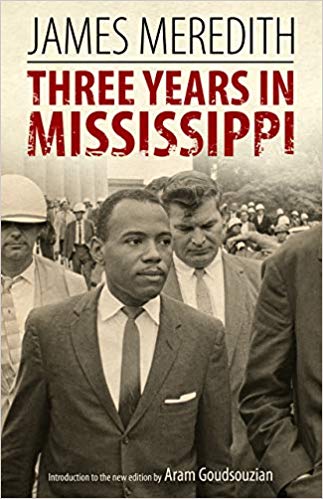 Three Years in Mississippi
Three Years in Mississippi
by James MeredithUniversity Press of Mississippi (Feb 01, 2019)
Read Detailed Book Description
James Meredith was born on a small farm in Mississippi in 1933 and served in the United States Air Force for nine years. Meredith risked his life when he successfully applied federal law and became the first black student at the University of Mississippi. In addition to activism, he earned a law degree at Columbia University Law School and became an entrepreneur and speaker. He is also author of A Mission from God: A Memoir and Challenge for America.
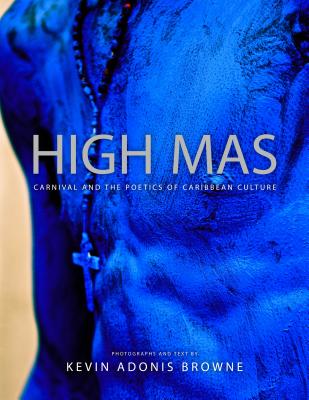 High Mas: Carnival and the Poetics of Caribbean Culture
High Mas: Carnival and the Poetics of Caribbean Culture
by Kevin Adonis BrowneUniversity Press of Mississippi (Sep 26, 2018)
Read Detailed Book Description
Overall Winner of the 2019 OCM Bocas Prize for Caribbean Literature
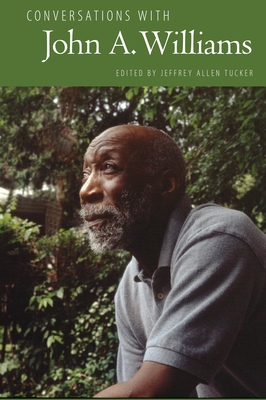 Conversations with John A. Williams
Conversations with John A. Williams
by Jeffrey Allen Tucker and John A. WilliamsUniversity Press of Mississippi (Feb 20, 2018)
Read Detailed Book Description
One of the most prolific African American authors of his time, John A. Williams (1925-2015) made his mark as a journalist, educator, and writer. Having worked for Newsweek, Ebony, and Jet magazines, Williams went on to write twelve novels and numerous works of nonfiction. A vital link between the Black Arts movement and the previous era, Williams crafted works of fiction that relied on historical research as much as his own finely honed skills. From The Man Who Cried I Am, a roman clef about expatriate African American writers in Europe, to Clifford’s Blues, a Holocaust novel told in the form of the diary entries of a gay, black, jazz pianist in Dachau, these representations of black experiences marginalized from official histories make him one of our most important writers.
Conversations with John A. Williams collects twenty-three interviews with the three-time winner of the American Book Award, beginning with a discussion in 1969 of his early works and ending with a previously unpublished interview from 2005. Gathered from print periodicals as well as radio and television programs, these interviews address a range of topics, including anti-black violence, Williams’s WWII naval service, race and publishing, interracial romance, Martin Luther King Jr., growing up in Syracuse, the Prix de Rome scandal, traveling in Africa and Europe, and his reputation as an angry black writer. The conversations prove valuable given how often Williams drew from his own life and career for his fiction. They display the integrity, social engagement, and artistic vision that make him a writer to be reckoned with.
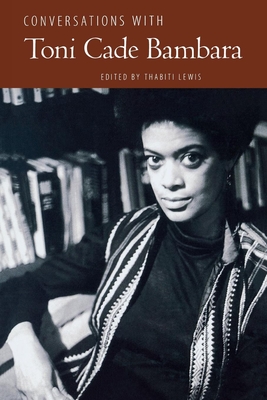 Conversations with Toni Cade Bambara
Conversations with Toni Cade Bambara
by Thabiti LewisUniversity Press of Mississippi (May 01, 2017)
Read Detailed Book Description
Conversations with Toni Cade Bambara reveals an artist and activist whose work deftly negotiates boundaries of feminism, nationalism, and film. The intimacy of these collaborations or conversations between Bambara (1939-1995) and her interviewers provides an excellent and necessary resource for those interested in scholarly approaches to her fiction, especially her novels The Salt Eaters and the posthumously published Those Bones Are Not My Child, and her acclaimed short story collection Gorilla, My Love.
The collection reveals the passion, humor, and real-life experiences of the woman who through her editing of the groundbreaking anthology of black women’s writing The Black Woman and contributions to the documentary W. E. B. Du Bois: A Biography in Four Voices changed perceptions of African American culture in the modern era.
The interviews present a woman who saw herself as — a teacher who writes, a social worker who writes, a youth worker who writes, a mother who writes.— Bambara viewed herself as a cultural worker for oppressed people whose job as an artist was making, in her words, “revolution irresistible.” Indeed, her fiction champions the working class and -average folk, - both of whom she felt were made invisible by mainstream American society.
The volume also displays Bambara’s passionate criticism of radicalism and revolutionary philosophies that were structured by patriarchal, sexist, and heterosexual-centric paradigms. Her willingness to challenge her own ideals, as well as those that conflicted with them, marks her as one of the most forceful black writers of her era.
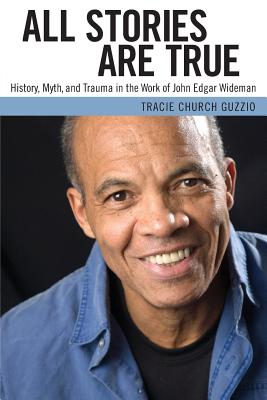 All Stories Are True: History, Myth, and Trauma in the Work of John Edgar Wideman
All Stories Are True: History, Myth, and Trauma in the Work of John Edgar Wideman
by John Edgar Wideman and Tracie Church Guzzio (editor)University Press of Mississippi (Mar 07, 2013)
Read Detailed Book Description
A mapping of the whole Wideman universe from novels to short stories to nonfiction. In All Stories Are True, Tracie Church Guzzio provides the first full-length study of John Edgar Wideman’s entire oeuvre to date. Specifically, Guzzio examines how Wideman (b. 1941) engages with three crucial themes—history, myth, and trauma—throughout his career, showing how they intertwine.
Guzzio argues that, for four decades, the influential African American writer has endeavored to create a version of the African American experience that runs counter to mainstream interpretations, using history and myth to confront and then heal the trauma caused by slavery and racism. Wideman’s work intentionally blurs boundaries between fiction and autobiography, myth and history, particularly as that history relates to African American experience in his hometown of Pittsburgh, Pennsylvania.
The fusion of fiction, national history, and Wideman’s personal life is characteristic of his style, which—due to its complexity and smudging of genre distinctions—has presented analytic difficulties for literary scholars. Despite winning the PEN/Faulkner award twice, for Sent for You Yesterday (1984) and Philadelphia Fire (1990), Wideman remains understudied. Of particular value is Guzzio’s analysis of the many ways in which Wideman alludes to his previous works. This intertextuality allows Wideman to engage his books in direct, intentional dialogue with each other through repeated characters, images, folktales, and songs.
In Wideman’s challenging of a monolithic view of history and presenting alternative perspectives to it, and his allowing past, present, and future time to remain fluid in the narratives, Guzzio finds an author firm in his notion that all stories and all perspectives have merit. Tracie Church Guzzio, Plattsburgh, New York, is an associate professor of English at the State University of New York, Plattsburgh. Her work has appeared in such edited anthologies as American Writers, Contemporary African American Novelists, and The Reader’s Companion to the American Short Story.
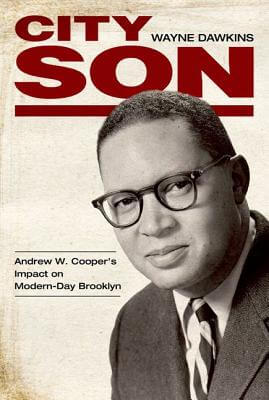 City Son: Andrew W. Cooper’s Impact On Modern-Day Brooklyn
City Son: Andrew W. Cooper’s Impact On Modern-Day Brooklyn
by Wayne DawkinsUniversity Press of Mississippi (Jul 02, 2012)
Read Detailed Book Description
In 1966, a year after the Voting Rights Act began liberating millions of southern blacks, New Yorkers challenged a political system that weakened their voting power. Andrew W. Cooper (1927-2002), a beer company employee, sued state officials in a case called Cooper vs. Power. In 1968, the courts agreed that black citizens were denied the right to elect an authentic representative of their community. The 12th Congressional District was redrawn. Shirley Chisholm, a member of Cooper’s political club, ran for the new seat and made history as the first black woman elected to Congress.Cooper became a journalist, a political columnist, then founder of Trans Urban News Service and the City Sun, a feisty Brooklyn-based weekly that published from 1984 to 1996. Whether the stories were about Mayor Koch or Rev. Al Sharpton, Howard Beach or Crown Heights, Tawana Brawley’s dubious rape allegations, the Daily News Four trial, or Spike Lee’s filmmaking career, Cooper’s City Sun commanded attention and moved officials and readers to action.Cooper’s leadership also gave Brooklyn—particularly predominantly black central Brooklyn—an identity. It is no accident that in the twenty-first century the borough crackles with energy. Cooper fought tirelessly for the community’s vitality when it was virtually abandoned by the civic and business establishments in the mid-to-late twentieth century. In addition, scores of journalists trained by Cooper are keeping his spirit alive.
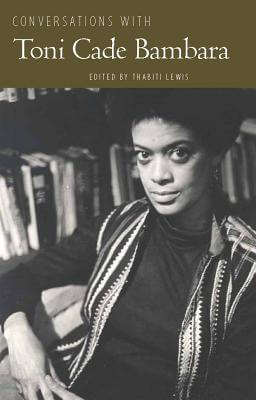 Conversations with Toni Cade Bambara
Conversations with Toni Cade Bambara
by Toni Cade BambaraUniversity Press of Mississippi (Feb 02, 2012)
Read Detailed Book Description
Conversations with Toni Cade Bambara reveals an artist and activist whose work deftly negotiates boundaries of feminism, nationalism, and film. The intimacy of these collaborations or conversations between Bambara (1939-1995) and her interviewers provide an excellent and necessary resource for those interested in scholarly approaches to her fiction, especially her novels The Salt Eaters (1980) and the posthumously published Those Bones Are Not My Child (1999), and her acclaimed short story collection Gorilla, My Love. The collection reveals the passion, humor, and real-life experiences of the woman whoBthrough her editing of the groundbreaking anthology of black women=s writing The Black Woman (1970) and contributions to the documentary W.E.B. Du Bois: A Biography in Four VoicesBchanged perceptions of African American culture in the modern era. The interviews present a woman that saw herself as "a teacher who writes, a social worker who writes, a youth worker who writes, a mother who writes." Bambara viewed herself as a cultural worker for oppressed people whose job as an artist was making, in her words, "revolution irresistible." Indeed, her fiction champions the working class and "average folk," both of whom she felt were made invisible by mainstream American society. The volume also displays Bambara=s passionate criticism of radicalism and revolutionary philosophies that were structured by patriarchal, sexist, and heterosexual-centric paradigms. Her willingness to challenge her own ideals, as well as those that conflicted with them, marks her as one of the most forceful black writers of her era.
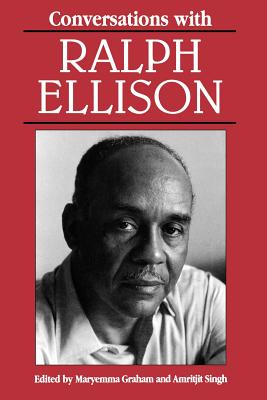 Conversations with Ralph Ellison
Conversations with Ralph Ellison
by Maryemma GrahamUniversity Press of Mississippi (Jan 11, 2012)
Read Detailed Book Description
Collections of interviews with notable modern writers
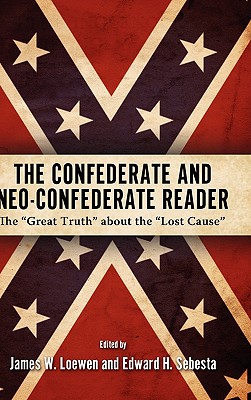 The Confederate and Neo-Confederate Reader: The Great Truth about the Lost Cause
The Confederate and Neo-Confederate Reader: The Great Truth about the Lost Cause
by James W. LoewenUniversity Press of Mississippi (Sep 01, 2010)
Read Detailed Book Description
Most Americans hold basic misconceptions about the Confederacy, the Civil War, and the actions of subsequent neo-Confederates. For example, two thirds of Americans—including most history teachers—think the Confederate States seceded for "states’ rights." This error persists because most have never read the key documents about the Confederacy.
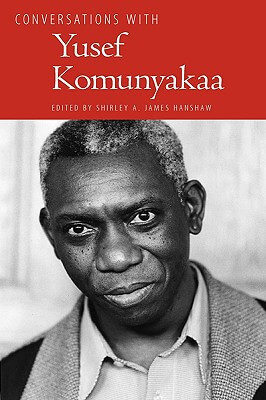 Conversations With Yusef Komunyakaa (Literary Conversations Series)
Conversations With Yusef Komunyakaa (Literary Conversations Series)
by Shirley A. James HanshawUniversity Press of Mississippi (Apr 22, 2010)
Read Detailed Book Description
Conversations with Yusef Komunyakaa brings together over two decades of interviews and profiles with one of America’s most prolific and acclaimed contemporary poets. Yusef Komunyakaa (b. 1947) describes his work alternately as "word paintings" and as "music," and his affinity with the visual and aural arts is amply displayed in these conversations. The volume also addresses the diversity and magnitude of Komunyakaa’s literary output. His collaborations with artists in a variety of genres, including music, dance, drama, opera, and painting have produced groundbreaking performance pieces. Throughout the collection, Komunyakaa’s interest in finding and creating poetry across the artistic spectrum is made manifest.For his collection Neon Vernacular: New and Selected Poems, 1977-1989, Komunyakaa became the first African American male to win the Pulitzer Prize for poetry. Through his work he provides keen insight into life’s mysteries from seemingly inconsequential and insignificant life forms ("Ode to the Maggot") to some of the most compelling historical and life-altering events of our time, such as the Vietnam War ("Facing It"). Influenced strongly by jazz, blues, and folklore, as well as the classical poetic tradition, his poetry comprises a riveting chronicle of the African American experience.
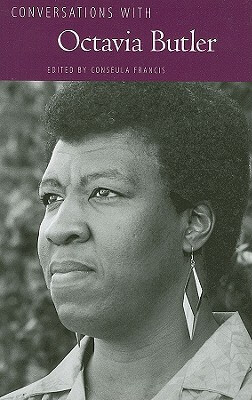 Conversations With Octavia Butler
Conversations With Octavia Butler
by Conseula FrancisUniversity Press of Mississippi (Mar 15, 2010)
Read Detailed Book Description
Octavia Butler (1947-2006) spent the majority of her prolific career as the only major black female author of science fiction. Winner of both the Nebula and Hugo Awards as well as a MacArthur "genius" grant, the first for a science fiction writer, Butler created worlds that challenged notions of race, sex, gender, and humanity. Whether in the postapocalyptic future of the Parable stories, in the human inability to assimilate change and difference in the Xenogenesis books, or in the destructive sense of superiority in the Patternist series, Butler held up a mirror, reflecting what is beautiful, corrupt, worthwhile, and damning about the world we inhabit. In interviews ranging from 1980 until just before her sudden death in 2006, Conversations with Octavia Butler reveals a writer very much aware of herself as the "rare bird" of science fiction even as she shows frustration with the constant question,"How does it feel to be the only one?" Whether discussing humanity’s biological imperatives or the difference between science fiction and fantasy or the plight of the working poor in America, Butler emerges in these interviews as funny, intelligent, complicated, and intensely original.
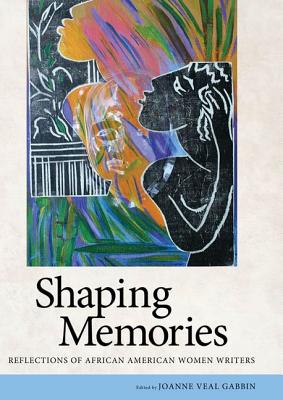 Shaping Memories: Reflections of African American Women Writers
Shaping Memories: Reflections of African American Women Writers
by Joanne V. GabbinUniversity Press of Mississippi (Aug 11, 2009)
Read Detailed Book Description
Shaping Memories offers short essays by notable black women writers on pivotal moments that strongly influenced their careers. With contributions from such figures as novelist Paule Marshall, folklorist Daryl Cumber Dance, poets Mari Evans and Camille Dungy, essayist Ethel Morgan Smith, and scholar Maryemma Graham, the anthology provides a thorough overview of the formal concerns and thematic issues facing contemporary black women writers.Editor Joanne Veal Gabbin offers an introduction that places these writers in the context of American literature in general and African American literature in particular. Each essay includes a headnote summarizing the writer’s career and aesthetic development. In their pieces these women negotiate educational institutions and societal restrictions and find their voices despite racism, sexism, and religious chauvinism. They offer strong testimony to the power of words to heal, transform, and renew.
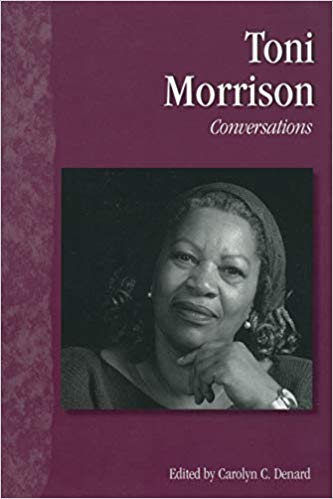 Toni Morrison: Conversations (Literary Conversations Series)
Toni Morrison: Conversations (Literary Conversations Series)
by Carolyn C. DenardUniversity Press of Mississippi (Jun 01, 2008)
Read Detailed Book Description
As a chronicler of the African American experience in fiction and as an incisive cultural commentator in her essays and lectures, Toni Morrison (b. 1931) is regarded as one of the nation’s most distinguished novelists and intellectuals. Her novels are richly layered narratives that explore the meanings of tragedy and myth in individual lives. Morrison’s perspectives on American life and culture, rendered with a deep understanding of the consequences of history and the power of art, are always compelling. Toni Morrison: Conversations includes interviews with the Nobel Laureate that bring into the foreground Morrison’s comments on American literature and society, the academy, and her own work. She discusses growing up in Lorain, Ohio, her role as editor at Random House, the continuing evolution of her style, her teaching philosophy, and her most recent novels Jazz, Paradise, and Love. This volume includes interviews and profiles from the 1970s and 1980s that were not collected in Conversations with Toni Morrison (1993) and a rich collection of new interviews published together for the first time, including conversations with Paula Giddings, Salman Rushdie, Charlie Rose, and Elissa Schappell. Carolyn C. Denard is the author of scholarly essays on Toni Morrison and the forthcoming Cambridge Introduction to Toni Morrison. She is Associate Dean of the College at Brown University and founder of the Toni Morrison Society.
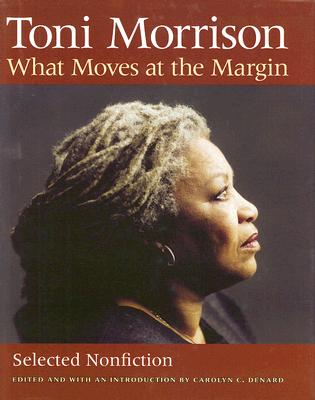 What Moves At The Margin: Selected Nonfiction
What Moves At The Margin: Selected Nonfiction
by Toni MorrisonUniversity Press of Mississippi (Apr 01, 2008)
Read Detailed Book Description
What Moves at the Margin collects three decades of Toni Morrison’s writings about her work, her life, literature, and American society. The works included in this volume range from 1971, when Morrison (b. 1931) was a new editor at Random House and a beginning novelist, to 2002 when she was a professor at Princeton University and Nobel Laureate. Even in the early days of her career, in between editing other writers, writing her own novels, and raising two children, she found time to speak out on subjects that mattered to her. From the reviews and essays written for major publications to her moving tributes to other writers to the commanding acceptance speeches for major literary awards, Morrison has consistently engaged as a writer outside the margins of her fiction. These works provide a unique glimpse into Morrison’s viewpoint as an observer of the world, the arts, and the changing landscape of American culture. The first section of the book, "Family and History," includes Morrison’s writings about her family, Black women, Black history, and her own works. The second section, "Writers and Writing," offers her assessments of writers she admires and books she reviewed, edited at Random House, or gave a special affirmation to with a foreword or an introduction. The final section, "Politics and Society," includes essays and speeches where Morrison addresses issues in American society and the role of language and literature in the national culture. Among other pieces, this collection includes a reflection on 9/11, reviews of such seminal books by Black writers as Albert Murray’s South to a Very Old Place and Gayl Jones’s Corregidora, an essay on teaching moral values in the university, a eulogy for James Baldwin, and Morrison’s Nobel lecture. Taken together, What Moves at the Margin documents the response to our time by one of American literature’s most thoughtful and eloquent writers. Toni Morrison is the Robert F. Goheen Professor Emerita at the Center for Creative and Performing Arts at Princeton University and is the author of Sula, Song of Solomon, Beloved, Paradise, and other novels. She has received the National Book Critics Circle Award, the Pulitzer Prize, and the 1993 Nobel Prize in Literature. Carolyn C. Denard is the author of scholarly essays on Toni Morrison and the forthcoming Cambridge Introduction to Toni Morrison. She is Associate Dean of the College at Brown University and founder of the Toni Morrison Society.
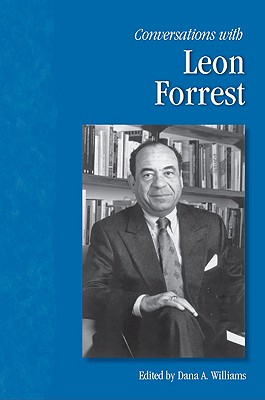 Conversations with Leon Forrest (Literary Conversations)
Conversations with Leon Forrest (Literary Conversations)
by Leon ForrestUniversity Press of Mississippi (Aug 07, 2007)
Read Detailed Book Description
Leon Forrest (1937-1997) was among the most innovative and ambitious African American fiction writers of the twentieth century. His books-which include novels There Is a Tree More Ancient than Eden, Divine Days, The Bloodworth Orphans, and Two Wings to Veil My Face, and the posthumously published novella Meteor in the Madhouse-fused classical mythology, realism, and African American history and culture. Largely set in his native Chicago, Forrest’s novels comprise an oeuvre of powerful urban modernism. Conversations with Leon Forrest collects interviews ranging from 1975 to 1997. Forrest discusses his literary influences (William Faulkner, Fyodor Dostoevsky, Thomas Hardy, Dylan Thomas), the significance of both Catholicism and Baptist impulses in his writing, and the intersection between politics and aesthetics in black literature and culture. Music-jazz, folk, blues, and gospel-also played an im-portant role in developing Forrest’s aesthetic. Throughout the collection, Forrest’s wit, erudition, and candor are evident. His moral concerns, disciplined work ethic, and stylis-tic invention are explored. Conversations with Leon Forrest is a valuable introduction to a writer who was recognized as a literary genius by Ralph Ellison and Toni Morrison. Dana A. Williams is associate professor of African American literature at Howard University. She is the author of "In the Light of Likeness-Transformed": The Literary Art of Leon Forrest and, with Sandra Shannon, the editor of August Wilson and Black Aesthetics.
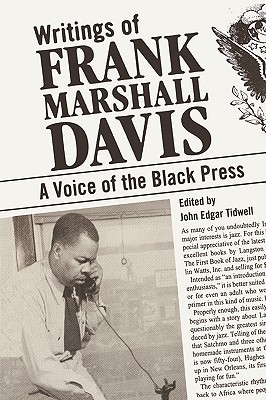 Writings of Frank Marshall Davis: A Voice of the Black Press
Writings of Frank Marshall Davis: A Voice of the Black Press
by Frank Marshall DavisUniversity Press of Mississippi (Dec 14, 2006)
Read Detailed Book Description
Writings of Frank Marshall Davis: A Voice of the Black Press edited by John Edgar Tidwell Frank Marshall Davis (1905-1987) was a central figure in the black press, working as reporter and editor for the Atlanta World, the Associated Negro Press, the Chicago Star, and the Honolulu Record.
Writings of Frank Marshall Davis presents a selection of Davis’s nonfiction, providing an unprecedented insight into one journalist’s ability to reset the terms of public conversation and frame the news to open up debate among African Americans and all Americans. During the middle of the twentieth century, Davis set forth a radical vision that challenged the status quo. His commentary on race relations, music, literature, and American culture was precise, impassioned, and engaged. At the height of World War II, Davis boldly questioned the nature of America’s potential postwar relations and what they meant for African Americans and the nation. His work frequently challenged the usefulness of race as a social construct, and he eventually disavowed the idea of race altogether. Throughout his career, he championed the struggles of African Americans for equal rights and laboring people seeking fair wages and other benefits.
Writings of Frank Marshall Davis reveals a writer in touch with the most salient issues defining his era and his desire to insert them into the public sphere. John Edgar Tidwell provides an introduction and contextual notes on each major subject area Davis explored. John Edgar Tidwell is an associate professor of English at the University of Kansas.
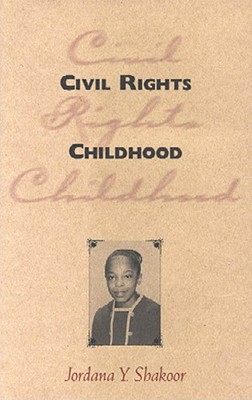 Civil Rights Childhood
Civil Rights Childhood
by Jordana Y. ShakoorUniversity Press of Mississippi (Jan 01, 2006)
Read Detailed Book Description
Two voices blend in this poignant memoir from the Civil Rights era in Mississippi—a father’s and a daughter’s. He was Andrew L. Jordan, a son in a dirt-poor family of sharecroppers near Greenwood. Jordana Shakoor is his little girl who grew up to write this book. In her southern childhood she is just becoming aware of her people’s dreadful predicament of loving their homeland but of hating its mistreatment of blacks. Like virtually all other southern black families, the Jordans endured humiliation and fear of white reprisals.The child states that her father rejected the ugly Jim Crow tradition and aimed at achieving an improbable dream in black Mississippi—to become a schoolteacher. First, he served as a "colored soldier" in the armed forces. Then he returned home to marry in 1955, an especially ominous year in the calendar of black southerners (the heinous murder of the black northern teenager Emmett Till occurred then). Jordan got his education with aid from the GI Bill and realized his dream of teaching. But it wasn’t enough. Beginning to live according to his conscience, he joined his life to the Civil Rights Movement. At first he moved behind the scenes and then worked openly in mass meetings and voter registrations. For his activism he lost his job and, unemployable at home, he was driven from Mississippi.In Ohio his family merged into the American middle class. When the daughter was twelve, Jordan let her read his fascinating memoir. It made her proud. When she was thirty-five, her father died. By the time she was forty she had begun to intertwine their two stories and their two voices. In a loving reminiscence of her childhood and family influences in Mississippi during a time of danger and strife Civil Rights Childhood unites their two lives and their histories.The voices in this book tell a story whose theme is familiar to legions of African Americans. Yet its particular voices, until now, have gone unheard. Though this is told by a child born in the segregated South, it also is the story of her family’s triumph over a dark heritage, a story of a Civil Rights childhood that casts away a centuries-old tradition of insult and denial to embrace instead a Civil Rights heritage of freedom and love.
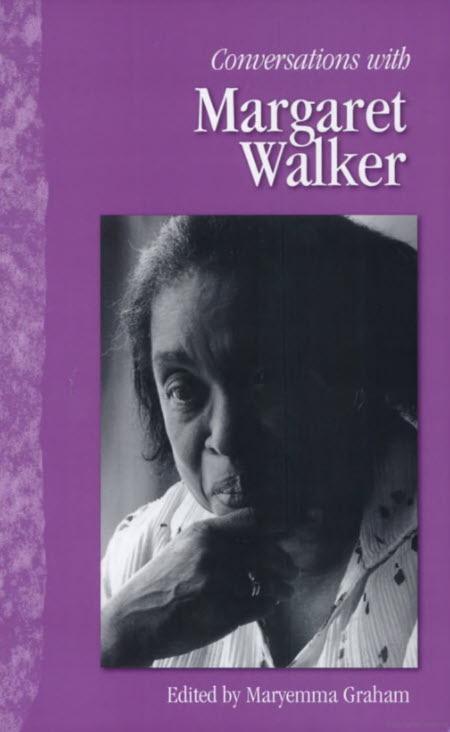 Conversations with Margaret Walker
Conversations with Margaret Walker
by Maryemma GrahamUniversity Press of Mississippi (Dec 01, 2002)
Read Detailed Book Description
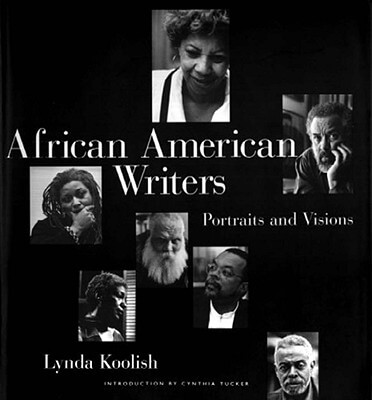 African American Writers: Portraits and Visions
African American Writers: Portraits and Visions
by Lynda KoolishUniversity Press of Mississippi (Oct 25, 2001)
Read Detailed Book Description
Ai Will Alexander Robert Allen Maya Angelou Amiri Baraka Paul Beatty David Bradley Gwendolyn Brooks Ed Bullins Barbara Christian Cheryl Clarke Lucille Clifton Wanda Coleman Edwidge Danticat Angela Davis Toi Derricotte Samuel R. Delany Rita Dove Frances Smith Foster Ernest Gaines Henry Louis Gates, Jr. Nikki Giovanni Jewelle Gomez Rosa Guy Forrest Hamer Michael S. Harper Essex Hemphill Charles Johnson June Jordan Jamaica Kincaid Yusef Komunyakaa Audre Lorde Nathaniel Mackey Haki Madhubuti Clarence Major Paule Marshall Colleen McElroy Toni Morrison Walter Mosley Harryette Mullen Albert Murray Gloria Naylor Barbara Neely Pat Parker Ishmael Reed Faith Ringgold Kalamu ya Salaam Sonia Sanchez Sapphire Ntozake Shange Quincy Troupe Derek Walcott Alice Walker Afaa Michael Weaver John Edgar Wideman John A. Williams Sherley Anne Williams August Wilson Al Young
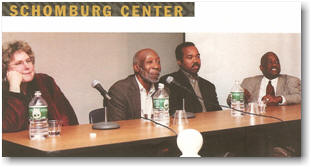
Author and Photographer Lynda Koolish discusses the
writers in her book with John A
Williams, author and subject, Troy Johnson, founder AALBC.com, and Wilfred
Samuels, professor, University of Utah, at the exhibition opening and book
celebration for African American Writers Portraits and Visions, held at the
Schomberg Center for Research in Black Culture
Over a period of thirty years Lynda Koolish has been photographing African American authors in their homes, at public readings, in universities, and at conferences and festivals.
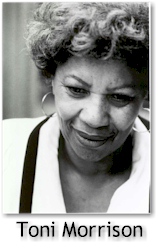 As this volume of her photographs presents the faces of acclaimed African
American writers, it also highlights the diversity within African American
literature and celebrates the many genres it explores. Koolish includes authors
of diverse identities—Caribbean writers who have immigrated to the United
States, writers of mixed heritage, writers who proudly proclaim their African
roots, playwrights, poets, novelists, critics, scholars, short story writers,
oral storytellers, and memoirists.
As this volume of her photographs presents the faces of acclaimed African
American writers, it also highlights the diversity within African American
literature and celebrates the many genres it explores. Koolish includes authors
of diverse identities—Caribbean writers who have immigrated to the United
States, writers of mixed heritage, writers who proudly proclaim their African
roots, playwrights, poets, novelists, critics, scholars, short story writers,
oral storytellers, and memoirists.
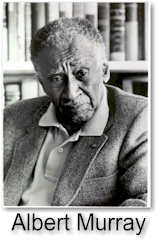 Koolish’s photographs convey a sense of clarity, warmth, and beauty. Along
with each portrait she provides a short biographical essay that comprises the
artistic vision of the author. Her superb gallery of fifty-nine black-and-white
photographs presents a grand assembly.
Koolish’s photographs convey a sense of clarity, warmth, and beauty. Along
with each portrait she provides a short biographical essay that comprises the
artistic vision of the author. Her superb gallery of fifty-nine black-and-white
photographs presents a grand assembly.
"We know these authors," Cynthia Tucker says. "We know their words. We can quote favorite passages from their essays, their poems, their novels. Yet we have rarely seen their faces. We have rarely seen them reading their works, talking to audiences, explaining their views. We know some important part of them but cannot attach to it a pair of eyes, a furrowed brow, a head full of dreadlocks. Now we can look at the eyes that see so much, that transform our understanding of the world. And we can look for, even if we cannot hope to find, the source of their genius."
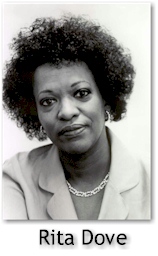 This is the first book devoted exclusively to photographic portraits of
African American writers since Carl
Van Vechten’s work featuring Harlem Renaissance writers in the 1920s and
1930s.
This is the first book devoted exclusively to photographic portraits of
African American writers since Carl
Van Vechten’s work featuring Harlem Renaissance writers in the 1920s and
1930s.
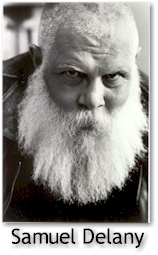 Lynda Koolish, a scholar of African American literature, is an associate
professor of English and comparative literature at San Diego State University.
She is well known also as a professional photographer whose work has appeared in
the New York Times, Belles Lettres, Poetry Flash, and Modern
Fiction Studies. Her photography has been featured in many exhibitions,
including the 1994 juried show at the Cork Gallery in the Lincoln Center for the
Performing Arts and in Celebrating Women Writers, a calendar published by the
New York Public Library in 1999. Cynthia Tucker is a syndicated columnist at the
Atlanta Constitution and a regularly featured commentator on PBS’s The
News Hour with Jim Lehrer.
Lynda Koolish, a scholar of African American literature, is an associate
professor of English and comparative literature at San Diego State University.
She is well known also as a professional photographer whose work has appeared in
the New York Times, Belles Lettres, Poetry Flash, and Modern
Fiction Studies. Her photography has been featured in many exhibitions,
including the 1994 juried show at the Cork Gallery in the Lincoln Center for the
Performing Arts and in Celebrating Women Writers, a calendar published by the
New York Public Library in 1999. Cynthia Tucker is a syndicated columnist at the
Atlanta Constitution and a regularly featured commentator on PBS’s The
News Hour with Jim Lehrer.
Conversations With Albert Murray (Literary Conversations Series)
by Roberta S. MaguireUniversity Press of Mississippi (Nov 01, 1997)
Read Detailed Book Description
As a cultural critic, biographer, essayist, and novelist, Albert Murray has had a wide-ranging and profound influence on American art in the decades since the Second World War. Artists as diverse as Walker Percy, Romare Bearden, and Wynton Marsalis have drawn from Murray and his ideas on jazz and the blues, modern consciousness, and the role of race in the American identity. His own works include The Hero and the Blues, Train Whistle Guitar, Good Morning Blues: The Autobiography of Count Basie as Told to Albert Murray, The Spyglass Tree, The Blue Devils of Nada, and The Seven League Boots. Yet this is the first book devoted to Murray himself, and fittingly it is based on the kind of conversations that have proven indispensable to his friends in the arts. It brings together twenty interviews with Murray conducted over the last twenty-four years, beginning with an interview that took place shortly after his second book, South to a Very Old Place, was published, and ending with a previously unpublished interview with the editor. In these conversations Murray discusses those who influenced him - Thomas Mann, Ernest Hemingway, Louis Armstrong, and Duke Ellington - and tells how they helped him develop a philosophy of art based on the blues as well as a new archetype of the American hero, the blues hero. The collection reveals a man who enjoys a good time and a good conversation and whose intellectual improvisations move over such subjects as his reminiscences about the South he grew up in, his insights about regional culture, and commentaries about the contemporary American scene. He is quick to laugh, to conspire, to correct misperceptions, to mimic the sounds a great jazz musician makes, or to recite lines from favorite poems or novels. Taken together, these interviews reveal Murray to be the composite American he describes in his first book, The Omni-Americans, which, when published in 1970, announced a new and important literary voice. Roberta S. Maguire is an assistant professor of English at the University of Wisconsin Oshkosh.
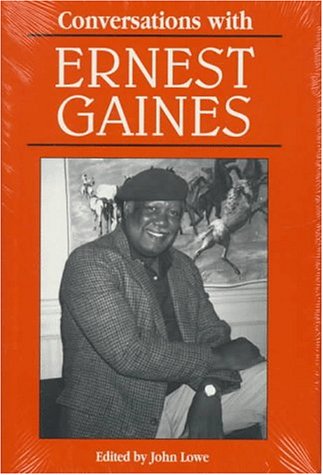 Conversations with Ernest Gaines (Literary Conversations)
Conversations with Ernest Gaines (Literary Conversations)
by Ernest GainesUniversity Press of Mississippi (Jun 01, 1995)
Read Detailed Book Description
Collections of interviews with notable modern writers
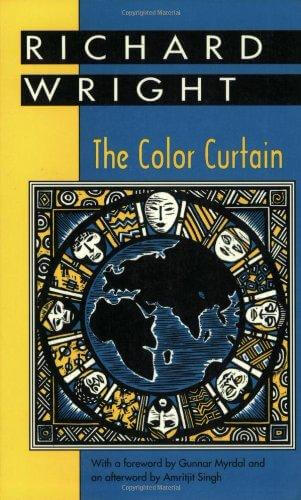 The Color Curtain
The Color Curtain
by Richard WrightUniversity Press of Mississippi (Jan 01, 1995)
Read Detailed Book Description
This indispensable work urging removal of the color barrier remains one of the key commentaries on the question of race in the modern era.
First published in 1956, it arose from Richard Wright’s participation in a global conference held in Bandung, Indonesia, in April 1955.
With this report of what happened at Bandung, Wright exhorts Western nations, largely responsible for the poverty and ignorance in their former colonies, to destroy racial impediments and to work with the leadership of the new nations in moving toward modernization and industrialization under a free democratic system rather than under Communist totalitarianism.
CONTENTS: Foreword by Gunnar Myrdal • Bandung: Beyond Left and Right • Race and Religion at Bandung • Communism at Bundung • Racial Shame at Bundung • The Western World at Bandung • Afterword by Amritjit Singh
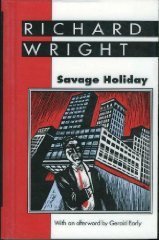 Savage Holiday
Savage Holiday
by Richard WrightUniversity Press of Mississippi (Jan 01, 1995)
Read Detailed Book Description
Erskine Fowler, an insurance executive forced by corporate intrigue into the long holiday of retirement, becomes enmeshed in a weekend of bizarre and bloody circumstances that reveal his troubled psyche and desperation. Naked and accidentally locked out of his apartment, he inadvertently causes a boy to fall to his death. Driven by guilt and by a compulsion to conceal his involvement, Fowler befriends the boy’s mother. Yet his self-destructive rages to redeem himself lead to mayhem. This is Richard Wright’s only published work with no black characters. He was unsure about how his readers would react to this bravely experimental novel. Shying away from the racial problem he depicted in his other works, he writes here a riveting study in psychological fiction. It deserves to be regarded anew as work from a master.
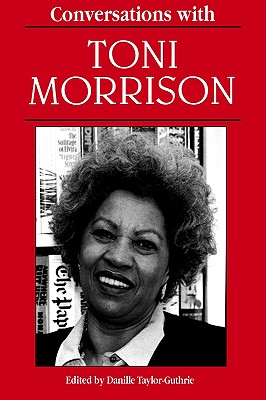 Conversations With Toni Morrison (Literary Conversations)
Conversations With Toni Morrison (Literary Conversations)
by Danille K. Taylor-GuthrieUniversity Press of Mississippi (Apr 01, 1994)
Read Detailed Book Description
This is a collection of interviews, beginning in 1974, with Toni Morrison, winner of the Nobel Prize for Literature. Morrison describes herself as an African-American writer, and these essays show her to be an artist whose creativity is intimately linked with her African-American experience.
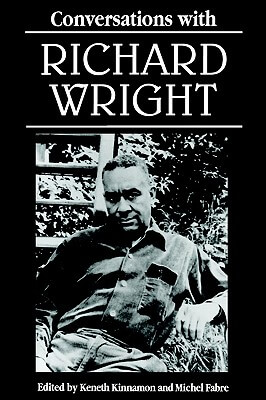 Conversations with Richard Wright (Literary Conversations)
Conversations with Richard Wright (Literary Conversations)
by Richard WrightUniversity Press of Mississippi (Oct 01, 1993)
Read Detailed Book Description
For more than two decades Richard Wright was interviewed by the American and foreign press, first as the author of Uncle Tom’s Children (1938), Native Son (1940), and Black Boy (1945), next as a famous expatriate recently arrived and lionized in postwar Paris, and finally as the seasoned writer of a dozen books. At the end of his life the young man from Mississippi had become a well-traveled intellectual deeply interested in the social and political as well as literary and racial issues of the Old, the New, and the Third World.Conversations with Richard Wright collects some fifty interviews, many of which are little known in the United States because they appeared in non-English European periodicals and newspapers. This collection reveals a serious, often didactic Wright, giving voice to his inarticulate brothers and sisters as he reveals his racially representative colonialism. Most of his interviewers were white men, and he was always trying to make them listen. European issues also claimed his attention as he struggled to reconcile Marxism, Freudianism, and existentialism to the political realities from 1945 to his death in 1960.
 Plan B
Plan B
by Chester HimesUniversity Press of Mississippi (Jan 01, 1993)
Read Detailed Book Description
Tomsson Black, political visionary, business genius, and underground revolutionary, plots to avenge injustice by instigating racial turmoil. The roots of racism extend far back into his ancestry, and persecution and suffering have affected many generations of his family. Tomsson’s own misfortunes are the impetus for him to found a criminal underworld whose ultimate purpose is the overflow of white society. This novel, the history of Tomsson Black and an indictment of racism in America, ends in apocalypse. It is Chester Himes’s ultimate statement about the destructive power of racism and his own personal fantasy of how the American Negro, through calculated acts of violence and martyrdom, could destroy the unequal system pervading American life. However, after reaching an ideological impasse, Himes, one of the angriest writers in the black protest movement, left this novel unfinished. After his death in Spain in 1984, a rumor persisted that he had left a final, unfinished Harlem story, in which he literally destroys both his Harlem backdrop and his heroes in a violent racial cataclysm. The manuscript, entitled Plan B, is that novel. It was edited and published in France, where it was widely hailed as an unfinished masterpiece by readers and critics alike. This new edition, appearing for the first time in the United States, includes an introduction by Michel Fabre (The Sorbonne) and Robert E. Skinner (Xavier University), who have prepared Plan B for publication.
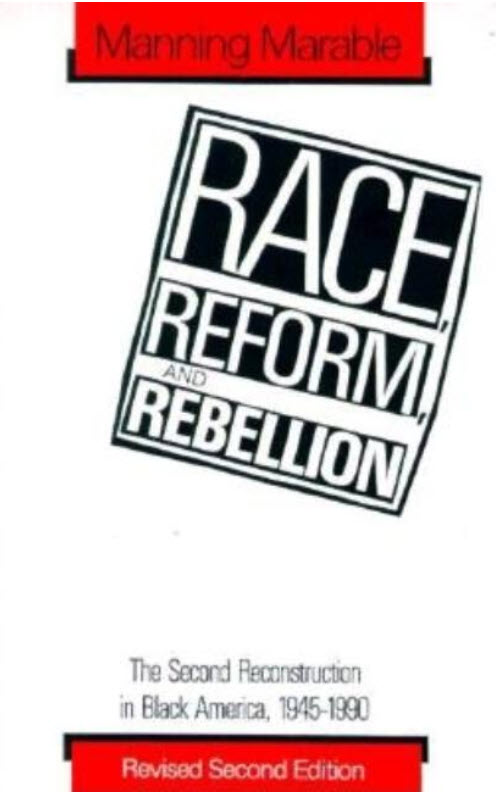 Race, Reform, and Rebellion: The Second Reconstruction in Black America, 1945-1990
Race, Reform, and Rebellion: The Second Reconstruction in Black America, 1945-1990
by Manning MarableUniversity Press of Mississippi (Jan 05, 1991)
Read Detailed Book Description
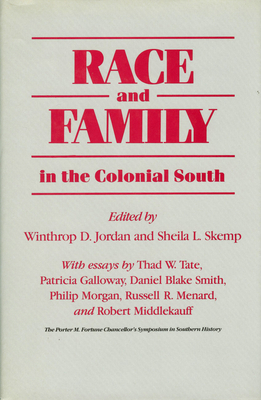 Race and Family in the Colonial South
Race and Family in the Colonial South
by Winthrop D. JordanUniversity Press of Mississippi (Dec 01, 1987)
Read Detailed Book Description
Race and Family in the Colonial South edited by Winthrop D. Jordan and Sheila L. Skemp with essays by Thad W. Tate, Patricia Galloway, Daniel Blake Smith, Philip Morgan, Russell R. Menard, and Robert Middlekauff is a volume of papers from the Porter M. Fortune Chancellor’s Symposium in Southern History held at the University of Mississippi in 1986. This volume questions what was distinctively "southern" about the colonial South. Although this region was diverse and displayed the kind of provincialism that characterized other English colonies during this period, the editors find it difficult to characterize the colonial South as unique. However, the roots of southern distinctiveness were beginning to take hold in the years before the American Revolution, as the papers in this volume attest.
In the opening essay, Tate surveys recent historical scholarship on the period and identifies trends for further study. Galloway examines Indian-French relations in eastern Louisiana during the 18th century. Smith focuses on the family unit and examines the various forces that worked against its formation. Morgan’s essay sheds new light on colonial slavery, which he argues operated within a harsh patriarchal system emphasizing "order, authority, and unswerving obedience." Menard’s essay is also about slavery, specifically the unique system in the Low Country of South Carolina. In the final paper, Middlekauff assesses each of the preceding papers and suggests subjects for future studies of the colonial South.
Winthrop D. Jordan (1931-2007) was an author, historian, and professor of history and Afro-American studies at the University of Mississippi. Sheila L. Skemp is a professor of American history at the University of Mississippi.
